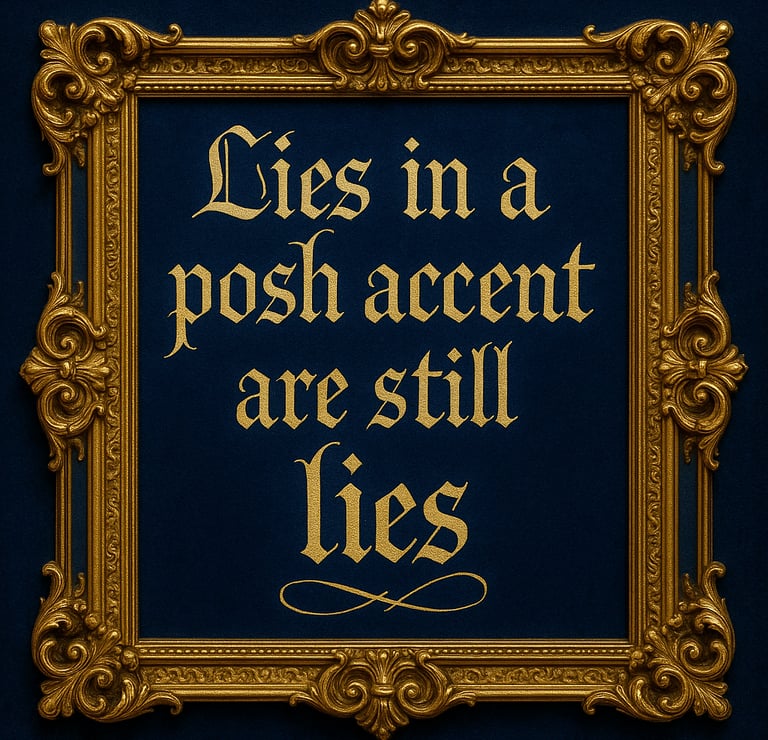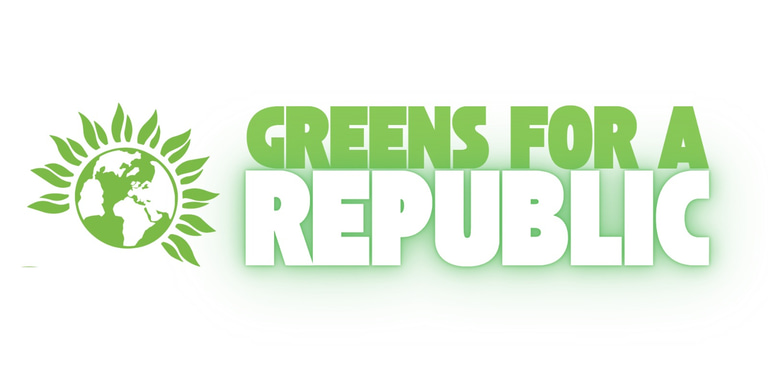The Power of Posh: How Accents Disarm Us and Uphold the Crown
9/13/20252 min read
There’s a strange alchemy in Britain: the sound of a posh accent can smooth over suspicion, soften criticism, and elevate even the most ordinary words into authority. We call it “received pronunciation,” “Queen's English,” or simply “poshness.” Whatever the label, it isn’t just an accent. It’s a code — one that has worked tirelessly in the service of the monarchy and the establishment.
The Disarming Effect of Poshness
Accents are never neutral. A Glaswegian growl or Scouse lilt can trigger stereotypes of toughness or cheekiness, but the “posh” voice carries a peculiar kind of power: it reassures, seduces, and distracts. We’re trained, almost unconsciously, to hear it as calm, competent, and trustworthy — even when the substance behind it is flimsy.
The royal family benefits enormously from this cultural trick. When a Windsor speaks, many people are less likely to scrutinise the words than to marvel at the sound. The accent does the heavy lifting, cloaking privilege in politeness.
Snobbery as a Shield
Snobbery is often thought of as outdated — the preserve of stately homes and dusty etiquette books. But in practice, it’s alive and well. Deference to “how things are done” keeps us from asking why they’re done at all. If the monarchy still survives in the 21st century, it’s not because its purpose is clear; it’s because we’ve been taught to treat criticism of it as vulgar, even embarrassing.
Snobbery enforces silence. Questioning the monarchy risks being branded “bitter,” “resentful,” or simply “not classy.” Meanwhile, the institution itself trades on an aura of refinement that is little more than well-curated theatre.
The Accent of Authority
Think about it: a politician with an Etonian voice can tell blatant untruths and still sound commanding. A royal can offer platitudes about “service” and “duty” while living a life of unimaginable privilege, and many people nod along. The accent is not just a sound; it’s a signal — of belonging, superiority, and untouchable legitimacy.
A Future of Many Voices
But the future doesn’t have to sound this way. In a Britain with an elected, non-executive president — a head of state chosen by the people rather than born into privilege — the accents will be different. A president might sound Mancunian, Welsh, Caribbean, Brummie, or with the sounds of a London market or a Yorkshire terrace.
And that difference matters. It breaks the illusion that only one sound equals authority. It reminds us that leadership can come from anywhere, that legitimacy rests not on vowels polished at Eton but on trust earned from citizens.
A head of state who speaks in the accent of the people is a symbol of democracy in action. It says: we all belong, we all count, and we don’t need to be disarmed by poshness to be inspired.
Why It Matters
If we strip away the mystique, what are we left with? An unelected family whose survival depends not on merit, but on branding. And central to that brand is the sound of reassurance: the polished accent, the cultivated snobbery, the quiet message that some people are simply born to rule while the rest of us are born to listen.
Accents can disarm us — but they can also wake us up. Once we realise how much of Britain’s deference rests on a particular sound, we can begin to hear it differently. Not as natural authority, but as performance. Not as inevitability, but as artifice.
And when we finally choose our own head of state, we’ll celebrate not the sound of inherited privilege, but the chorus of accents that make up Britain itself.


